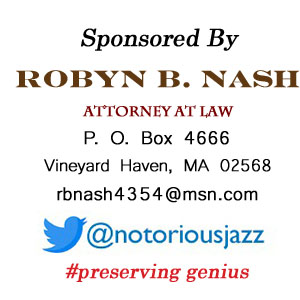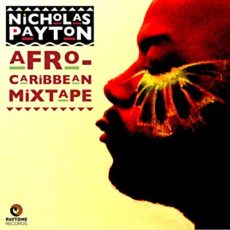
Daily Dose Of Jazz…
Nicholas Payton was born on September 26, 1973 in New Orleans, Louisiana to bassist and sousaphonist Walter Payton. He took up the trumpet at the age of four and by age nine was sitting in with the Young Tuxedo Brass Band alongside his father. He began his professional career at ten years old as a member of James Andrews’ All-Star Brass and was given his first steady gig by guitarist Danny Barker at The Famous Door on Bourbon Street. He enrolled at the New Orleans Center for Creative Arts and then at the University of New Orleans.
After touring with Marcus Roberts and Elvin Jones in the early Nineties, Payton signed with Verve Records and his first album as a leader, From This Moment was released in 1994. In 1996 he performed on the soundtrack of the movie Kansas City, and in 1997 received a Grammy Award for Best Instrumental Solo for his recording Doc Cheatham & Nicholas Payton.
After seven albums on Verve, Nicholas moved to Warner Bros. Records, and has collaborated with among others Trey Anastasio, Ray Brown, Ray Charles, Daniel Lanois, Dr. John, Stanley Jordan, Herbie Hancock, Roy Haynes, Zigaboo Modeliste, Marcus Roberts, Jill Scott, Clark Terry, Allen Toussaint, Nancy Wilson, Dr. Michael White, and Joe Henderson.
He is a founding member of the SFJAZZ Collective, joined The Blue Note 7 honoring the 70th Blue Note Records anniversary and formed a 21-piece big band ensemble called the Television Studio Orchestra. In addition he recorded and released Bitches, a love narrative on which he played every instrument, sang, and wrote all of the music, the Czech National Symphony Orchestra commissioned and debuted his first full orchestral work, The Black American Symphony and formed his own record label, BMF Records. Payton has been a Distinguished Artist and Visiting Lecturer at Tulane University and belongs to a growing group of race scholars and activists committed to social justice. His writings are provocative as witnessed with his most notable pieces On Why Jazz isn’t Cool Anymore describes the effects of cultural colonization on music.
Trumpeter Nicholas Payton has recorded sixteen albums as a leader, another eight as a sideman wth Eric Alexander, Elvin Jones, Joanne Brackeen, Jimmy Smith and Allen Toussaint among others and continues to perform, compose, write and record,
More Posts: trumpet
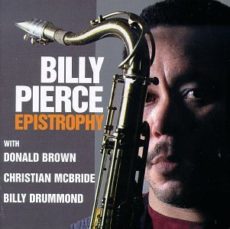
Daily Dose Of Jazz…
Billy Pierce was born September 25, 1948 in Hampton, Virginia and was raised in Florida by parents who were both educators. The household valued music and Pierce and his siblings each learned an instrument. He took up the saxophone as a child and started out listening to records by Dave Brubeck. Later he was drawn to the music of John Coltrane and Cannonball Adderley. Since he was only 16 when he graduated from high school, his parents steered him toward a college in the South so he wouldn’t be too far from home. After he turned 18, and studied with Joe Viola, Andy McGhee and Joe Allard at Berklee College of Music,
Also known as Billy, he went on to play with Art Blakey and the Jazz Messengers in the early 1980s and in the Tony Williams quintet in the mid-1980s to early 1990s. He has led numerous sessions and released an equal number of CDs. He is the school’s woodwind department chair.
He has recorded with Blakey and Williams as well as with Makoto Ozone and Superblue. Saxophonist Billy Pierce continues to perform, compose and record.
More Posts: saxophone
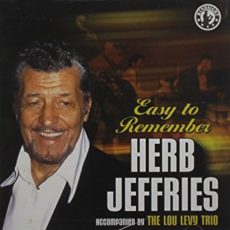
Daily Dose Of Jazz…
Herb Jeffries was born Umberto Alexander Valentino on September 24, 1913 in Detroit, Michigan of mixed heritage. Never knowing his father who died in World War I and grew up in a rooming house in a mixed neighborhood without encountering severe racism as a child. Showing great interest in singing and intensely musical from boyhood, during his formative teenage years he was often found hanging out with the Howard Buntz Orchestra at various Detroit ballrooms. After the Wall Street Crash of 1929, he dropped out of high school to earn a living as a singer.
He began performing in a local speakeasy where he caught the attention of Louis Armstrong, who gave the teenager a note of recommendation for Erskine Tate at the Savoy Ballroom in Chicago, Illinois. Knowing that Tate fronted an all-black band, Jeffries claimed to be a Creole, and was offered a position as a featured singer three nights a week. Later he toured with the Earl Hines Orchestra through the Deep South.
The 1940s and 1950s saw Herb record for a number of labels, including RCA Victor, Exclusive, Coral, Decca, Bethlehem, Columbia, Mercury and Trend. His album Jamaica, recorded by RKO, is a concept album of self-composed calypso songs. He often used makeup to darken his skin in order to pursue a career in jazz and to be seen as employable by the leading all-black musical ensembles of the day.
He also starred in several low-budget race Western feature films aimed at black audiences from 1937 to 1939, Harlem on the Prairie, Two-Gun Man from Harlem, Rhythm Rodeo, The Bronze Buckaroo and Harlem Rides the Range. He also acted in several other films and television shows billed as Herbert Jeffrey, Herbert Jeffries or the Sensational Singing Cowboy.
Singer and actor Herb Jeffries, who was the only Black singing cowboy star in Hollywood has a star on the Hollywood Walk of Fame, was inducted into the and a Golden Palm Star on the Palm Springs Walk of Stars, passed away on May 25, 2014 in Los Angeles, California.
More Posts: vocal
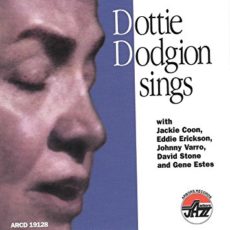
Daily Dose Of Jazz…
Dottie Dodgion was born Dorothy Rosalie Giaimo on September 23, 1929 in Brea, California. Growing up in the San Francisco Bay Area as a child, she sang in the band led by her drummer father and as a teenager sang with Charles Mingus. She began playing drums in the 1950s though she was discouraged by her husband Monty Budwig, but receiving encouragement to play from Jerry Dodgion, she subsequently divorced Budwig to marry Dodgion.
She worked with Carl Fontana in Las Vegas, Nevada toward the end of the decade and then relocated to New York City in 1961. There she played in Benny Goodman’s ensemble for about a week, then moved on to work with Marian McPartland and Eddie Gomez, Billy Mitchell and Al Grey, Wild Bill Davison, and Al Cohn and Zoot Sims over the course of the 1960s. In the early 1970s she worked with Ruby Braff and Joe Venuti, then played alongside her husband in Germany with Walter Norris and George Mraz.
Dottie and Jerry separated in the late Seventies and she moved to p style=”text-align: justify;”>Washington, D.C. for a time, where she was musical director for the club The Rogue and Jar. After moving back to New York City she worked in the 1980s with Melba Liston, George Wein, Michael and Randy Brecker, Frank Wess, Jimmy Rowles, Carol Sloane, Pepper Adams, Tommy Flanagan, Roland Hanna, Sal Nistico, Herb Ellis, Chris White, Bob Cranshaw, Joe Newman, and Harold Danko. After returning to the Bay Area in 1984 she played regularly at the Monterey Jazz Festival.
Drummer and singer Dottie Dodgion stopped being active in jazz at age 87. She died five years later on September 17, 2021, in a hospice in Pacific Grove, California, after suffering a stroke.
<
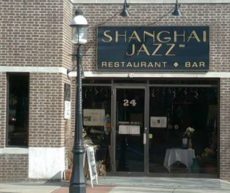
The Jazz Voyager
This week the Jazz Voyager is in Madison, New Jersey and tonight will be sitting in a jazz spot established in 1995 by Martha Chang and David Nui called Shanghai Jazz. Inspired by Shanghai of the 1920s and 1930s, they are reputed to host acclaimed jazz musician performances six days a week with no cover except for special events. Located at 24 Main Street, 07940 if you need to map quest it but this jazz voyager is going to Uber my way over there.
Looking forward to sampling the Asian cuisine that is inspired by the seasons while enjoying Elias Bailey and Avalon Jazz Band in one of the top 100 jazz clubs in the world. Take precaution on Friday and Saturday by calling 973-822-2899 for a required reservation if you want seating at the 6:30 or 8:35 performance. #jazzvoyager #wannabewhereyouare
More Posts: adventure,club,genius,jazz,music,preserving,restaurant,travel,voyager





